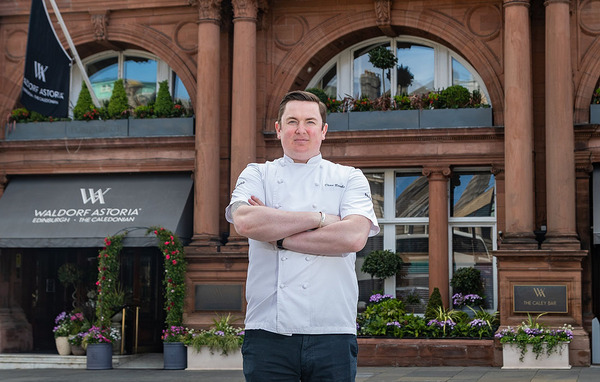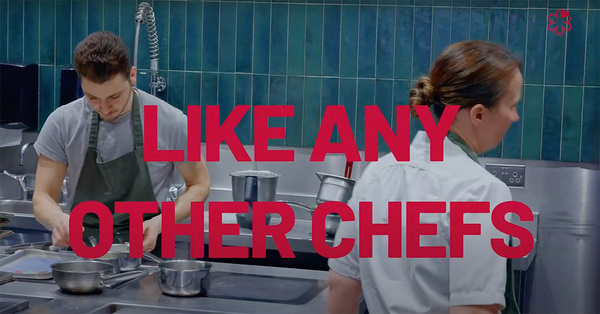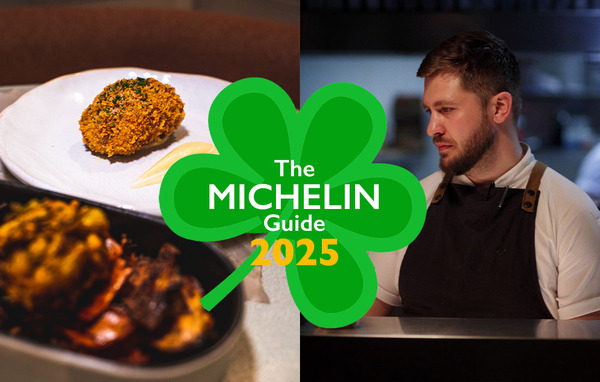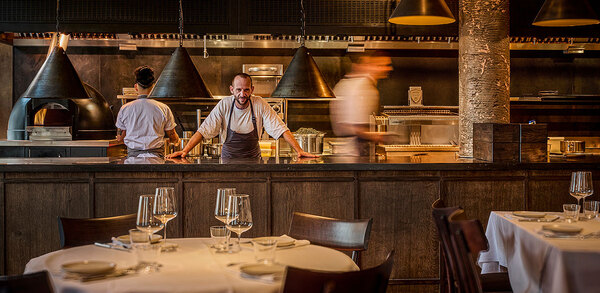The benefits of local sourcing
Local sourcing has become a buzzword. Almost every hospitality business will rightly claim to prefer to support local business, both for the local economy and the environment. There will always be those that make wild claims to cash-in on customers who want the feel-good green factor, but by backing up your claims with real community initiatives you can really set your sustainability efforts apart.
"Using reputable local companies helps the local economy, supports local employment and creates strong inter-business relationships which often results in reciprocal business coming through the doors," explains Considerate Hoteliers Association director John Firrell.
It's important to remember that local sourcing can encompass much more than just an operation using locally supplied and seasonal food. But what are the best ways to get locally sourced products and really incorporate this into the heart of your operation?
No one knows better than those who are already doing it, so we've spoken to eight operators from around the UK who share their expertise, tips and success stories.
**
SUCCESSFUL PARTNERSHIPS
**Tony Barnfield, chef-proprietor, the Nurse's Cottage restaurant with rooms, New Forest National Park
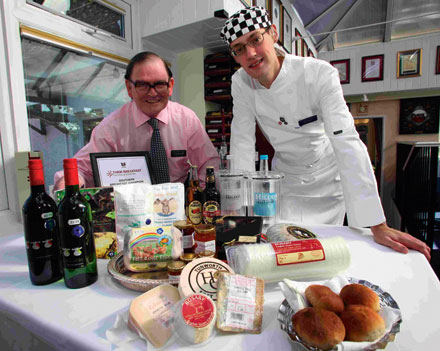
Determined, I came up with the idea of collecting the little jars of jam. Rather than "recycling" them through the council recycling scheme I gave them to a local producer to sterilise and fill. Less than one year on, this has led our one-woman producer of "Perfect Preserves" in Lymington to move production out of her kitchen into a unit in Sway, as her business has grown so much in such a short time. We now operate the same system with our local honey producer in Totton.
WORK WITH SUPPLIERS FOR MUTUAL BENEFIT
Andrew Foulkes, assistant manager - operations, Le Manoir aux Quat'Saisons, Great Milton, Oxfordshire
After sampling a product and completing a site visit of the local supplier, we endorse it by providing a short quote from the head chef, general manager or Raymond Blanc, which the supplier can use on their publicity merchandise.
This helps to solidify the image of the local supplier to potential consumers, as well as offering bargaining room for discounts with the company. So think outside the box. Is there a local supplier that has something you want, who requires something that you already have?
The current initiative of swapping waste oil from the kitchens for wooden carving boards from a local carpenter may seem unusual, however, the local carpenter can turn this oil into bio-diesel to power his car, and we benefit from fantastic quality carving boards.
GETTING ON WITH THE LOCALS
The Bingham hotel, Richmond upon Thames, Surrey 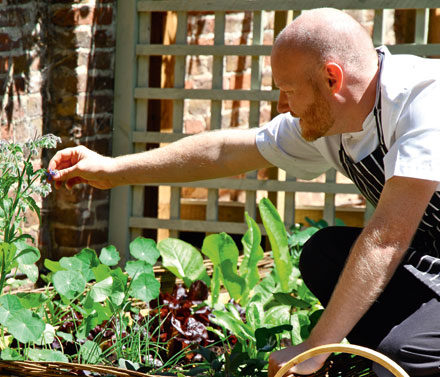
The hotel has found suppliers such as Surrey-based Secretts Farm for fruit, herbs, vegetables and salads; Chiswick-based butchers Macken Brothers for organic sausages, Aberdeen Angus beef and other free- range, naturally reared meats; Sandy's in Twickenham and the Upper Scale for fish; chocolate from Richmond-based chocolatier William Curley; and cheese from the Teddington Cheese shop just up the road from the hotel.
Michelin-starred executive chef Shay Cooper uses his knowledge of seasonal and British produce when creating his menus. Trinder says: "His menus don't always feature the most luxurious ingredients but focus on using those exceptional in their local provenance and quality when they are in season."
Similarly with beverages - wine, tea and coffee are all sourced from niche suppliers who use independent boutique and sustainable growers. The hotel also has a small herb, edible flower and vegetable patch.
THE PERSONAL TOUCH
Anna Pascoe, business development manager, Primrose Valley hotel, Primrose Valley, St Ives, Cornwall
With all of the suppliers that we have met with, we have fostered really strong relationships because that face-to-face initial (and ongoing) contact really helps both parties know what to expect and deliver for one another.
One example is our florist, the Cornish Flower Train. The research we had done into the company beforehand confirmed that they had all the right green credentials - no air-freighted flowers, all grown within 25 miles of the local area. But the personal rapport we have built up means that when we call first thing in the morning to get that bouquet for lunchtime, they oblige. They even select the flowers for the arrangements to complement the wallpaper in our bar and lounge - that's what we call a partnership.
Having said that, however, if you're starting out in the field of local sourcing, don't fall into the trap of thinking that everything has to come direct from the producers - sometimes it is more time and cost effective for all parties to use a wholesome-natured intermediary.
DRIVING TRADE FOR EACH OTHER
Lunya, Liverpool 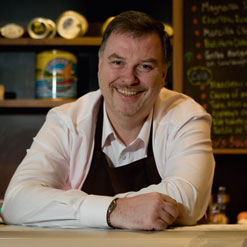
All of its meat comes from within a 12-mile radius, using traditional rare breeds including Saddleback and Gloucester Old Spot pork, Wirral White turkeys through Wirral Edges of New Ferry; the seasonal vegetables come from Merseyside farms like Claremont Farm of Wirral and Lemon Tree of Formby, while the locally fished shrimp, mussels and sea bass comes from Wards of Birkenhead. Lunya even had 300 turkeys bred for them on a local farm in Willaston on the Wirral for Christmas.
Peter Kinsella (left), owner of Lunya, says: "Local sourcing allows us to drive trade for each other. Our meat and fish suppliers also have retail outlets and we both cross-recommend customers. We also find that as our suppliers are local, they frequently eat in the restaurant with their families."
But while food sourcing is clearly important, Kinsella adds: "Local sourcing needs to extend beyond food, it's important even when considering which workmen to use or hygiene suppliers."
POINT OF SALE
Gill Jenkins, proprietor, Bedknobs bed & breakfast, Bodmin, Cornwall Local sourcing is not restricted to food and produce. Seek out good quality, locally made toiletries for your guest rooms that are both plant-based and free from synthetic chemicals.
Once established that your guests like the range on offer in their rooms, purchase retail sizes of those products to offer for sale to your guests. This engages the producer because you are actively promoting their products. And it engages your guest with the concept of local sourcing so it really is win win all round.
ATTENTION TO DETAIL
Ciaran Fahy, managing director, the Cavendish London We insist on the meat, fruit and vegetable and fish suppliers stating the source of all food on the delivery note. We actually had to change our fruit and vegetable supplier as our original one couldn't do this.
This makes it easy for the chef (and manager) to review and understand if it is non-UK and get an explanation.
I noted some inconsistency recently and for a month I asked the chef to bring me all the delivery notes daily and write on them if a product was not from the UK. Why? The suppliers were aware I was personally monitoring them and it sharpened their act considerably.
The supply chain is the most challenging element of our sustainability commitment, and I am surprised at how much effort we have had to put in to get them to understand and support our commitment. It is a lot easier than five years ago though, as clearly more customers are demanding UK seasonal produce.
HUNTING AROUND FOR REGIONAL AWARDS
The Marquis at Alkham, Kent 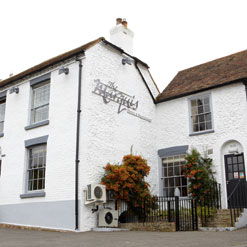
A Yorkshire farmer's son, Lakin now champions Kent produce at the Marquis and has designed two six-course tasting menus to take full advantage of the local produce - the vegetarian "harvest and foraged" menu (£45) and the "farmed and fished" menu (£55), feature some of the county's best fish and meat including Romney Marsh lamb, line-caught mackerel, Faversham rose veal, Gadds Ale cake and Mature Ashmore ice-cream.
But it didn't all fall into his lap. Lakin says: "Born and bred in Yorkshire I knew all the farmers there, but when I first moved here it was quite hard, and I was relying on contacts from home. It took a while to develop the local side, but as we got a reputation, local producers started to come to see me." Family connections also played a part - his parents breed Dexter cows and their link persuaded Kent breeder Di Smith to supply Lakin.
For fish, local fishmonger Jenkins & Sons supplies him with produce caught between Hastings and Ramsgate, but this has meant a change of tack for Lakin: "I buy daily caught local fish, which was a bit of a nightmare at first as they don't land monkfish or halibut, which I was used to. But now I've found my way round fish like gurnard and huss which are possibly better, just not as well known."
He also forages himself and what he can't find, he gets from Miles Irving, aka "The Forager", based in nearby Canterbury. "There's a great wealth of produce to be found round here, from carrot flower, sea aster, cabbage to wild fennel seeds, marjoram and thyme," he adds.



